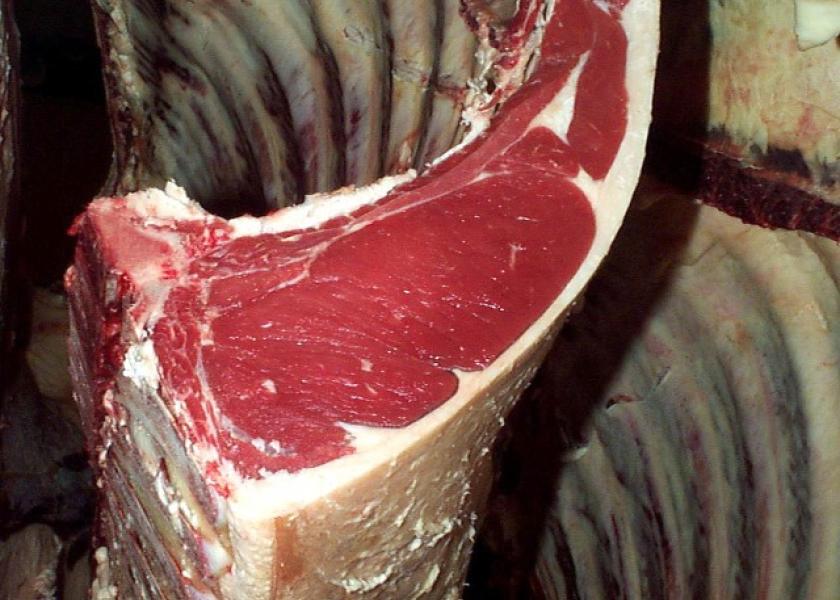Iowa Businessman Convicted of Fraud Over Halal Beef Exports

A prominent Iowa businessman was found guilty Monday of falsifying documents as part of a scheme to export beef to Malaysia and Indonesia that didn't meet those countries' strict slaughter standards.
A federal jury in Cedar Rapids convicted Bill Aossey Jr. of 15 of 19 charges he faced, including conspiracy, making false statements on export certificates and wire fraud. He was acquitted of four counts of money laundering.
Aossey is the founder of the Midamar Corp., a Cedar Rapids-based company that is considered a pioneer in the sale of halal meat and food products. The 73-year-old is also a longtime leader in the city's relatively large Muslim community.
After the verdict, U.S. District Judge Linda Reade ordered Aossey held in federal custody. Assistant U.S. Attorney Rich Murphy said Aossey could face a prison term of five or more years at his sentencing, which hasn't been scheduled.
Prosecutors say Aossey oversaw a scheme in which Midamar employees lied about the origin of their products so they could export them to Malaysia and Indonesia from 2007 to 2010. Both countries restrict imports to slaughterhouses that are certified as meeting their standards for halal, or slaughter practices based on Islamic law.
The products being shipped had come from a Minnesota slaughterhouse, PM Beef, that wasn't approved by Malaysia or Indonesia. Instead, Aossey directed employees to remove PM Beef's establishment number from the packaging and replace them with ones that falsely showed that the products had come from J.F. O'Neill Packing Co. in Omaha, Nebraska, a slaughterhouse that had certification.
Testifying in his own defense during the weeklong trial, Aossey admitted that he told employees to change the establishment numbers and that the company falsified export documents. But he said he didn't believe those actions were criminal and repeatedly described them as minor administrative infractions — an explanation criticized Monday by the judge.
Aossey's attorney, Haytham Faraj, said he respected the jury's verdict but would appeal. He said Aossey admitted making misrepresentations but argued they were immaterial because the customers were satisfied with the products they received. He said PM Beef's slaughtering methods were accepted as halal.
"The meat was halal and it continued to be halal," he said.
Faraj said the violations were addressed by the U.S. Department of Agriculture, which sanctioned Midamar after discovering them in 2010, and should not have later been charged as crimes.
A USDA inspector testified that such labeling violations were serious and could result in countries blocking all beef imports from the U.S.
The company and Aossey's two sons, Midamar directors Jalal and Yahya "Bill" Aossey, are also awaiting trial as part of the yearslong investigation. Each has pleaded not guilty to allegations that Midamar sold millions in beef to customers overseas that didn't follow the halal practices promised in its labeling and advertising.
Faraj said that, in his experience, it was "highly unusual" for a judge to order a white-collar criminal jailed pending sentencing. He called his client "a nice old man" who was known in the community for his generosity.
But during a detention hearing Monday, prosecutors tried to link Aossey to a scheme in which four defendants are charged with using Midamar's shipping facilities in Cedar Rapids to smuggle weapons to Lebanon. Aossey had been in contact with the suspects, one of whom is a close friend, and is shown on surveillance video briefly going into one of the containers after it was packed, prosecutors argued.
Faraj said Aossey was unaware of the weapons and shouldn't face "guilt by association."
But Reade said she was skeptical of Aossey's claim of ignorance, noting he was upset after learning the container had been seized.







